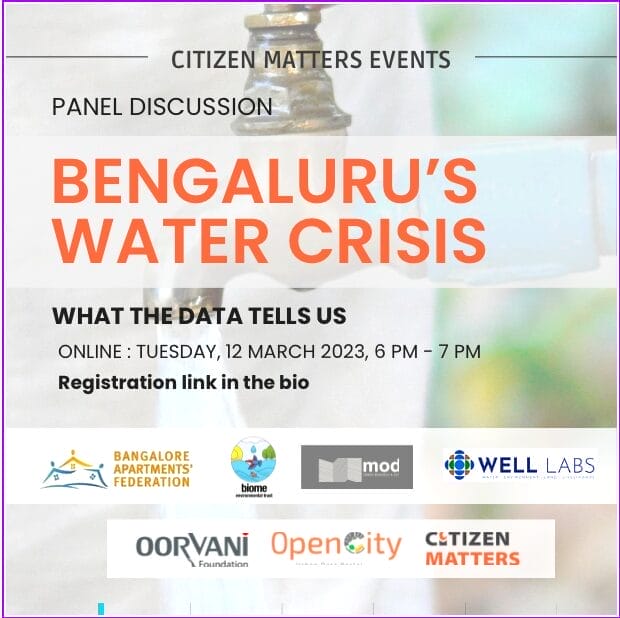In the backdrop of a city reeling under water shortage, Opencity held a Bengaluru Water Datajam on March 3rd to look at what data says about the state of water supply in the city, and what can be done to improve the water situation even in dry years.
The event was held by Opencity in collaboration with Well Labs, MOD Foundation, Bangalore Apartments Federation (BAF), and Biome Environmental Trust.
In the day-long event, 32 participants from varied backgrounds, including urban planners, GIS experts, software developers and other active citizens joined hands to analyse public data in the context of water – groundwater, rainfall, lakes, water supply – in Bengaluru.
The participants were split into six teams, who delved deep to identify trends and patterns to provide better insights into water supply and groundwater levels, usage and recharge, and wastewater potential in Bengaluru.
Read more: Water scarcity in Bengaluru: Drowning in problems, thirsting for solutions
The teams will present their findings on a zoom webinar.
Event details
- Title: Bengaluru’s water crisis: What the data tells us
- Date: 12 March
- Day: Tuesday
- Time: 6 pm onwards
- Online event: register here

Speakers:
- OpenCity Water datajam teams
- Vishwanath Srikantiah (Zenrainman), water activist and educator
- Shashank Palur, Hydrologist, Urban Water Program (WELL) Labs
- Satish Mallya, Vice President of Bangalore Apartments’ Federation
- Raghu Rajagopal, Project consultant – MOD Foundation
- Moderated by: Vaidya R – Opencity